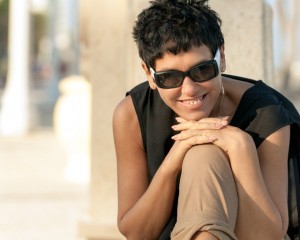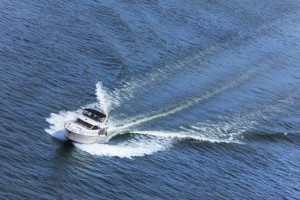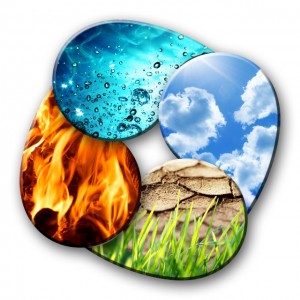
I was born in the Fall of 1946, which makes me one of the first souls to incarnate after World War II. Every generation has a unique place in history, but I believe there has never been a single generation that has experienced as much change as we have, and I LOVE how we have handled it!
If we look back at the average life expectancy just one hundred years ago, it was 52 years for men and 56.8 years for women. Today, it is 76.2 years for men and 81.1 for women! So even if change were happening at the same pace it was a century ago, we would have even more change to adapt to because we are living so much longer. But, of course, the pace of change is nowhere close to what it was in the last couple of centuries.
According to an article published by “Industry Tap,” the total amount of knowable information is “doubling every 12 months, soon to be every 12 hours! … Buckminster Fuller created the ‘Knowledge Doubling Curve;’ he noticed that until 1900 human knowledge doubled approximately every century. By the end of World War II knowledge was doubling every 25 years.”
Does that scare you!
It shouldn’t because we baby boomers have had a big advantage in coping with this change. For the majority of us, our childhoods were protected from war, hunger and disease in our homeland. We were given television, bicycles, comic books, ice cream, swimming pools and Disneyland for entertainment, along with libraries full of books, playgrounds that were safe and schools where we could go as far as we wanted because college was affordable. For most of us, mom was there in the kitchen cooking dinner when we came home from school. Bottom line … we were able to grow up with optimism.
In our 20s, most of us got practical and started careers. We were able to purchase our own homes and cars, take fun vacations and work reasonable hours with reasonable security, especially if you worked for a large company. We had families, and they too, for the most part, got to live the good life … although for them most moms went off to work during the day, for we were now ushering in the women’s rights revolution. Women wanted careers too, being optimistic that they could do it all, and that they had the right to express themselves in leadership positions at work while remaining “mom” at home.
Things started to get stressful because it was hard for families to really do that, and even harder for men and women to make the adjustments in their relationships. And then came the technical/information age revolution … right in the middle of our careers! But our optimistic attitudes born out of our comfortable childhoods carried us through. We were confident we could learn these new things, and we were excited about participating in this knowledge frontier.
Unfortunately, at the end of our careers, a lot of the security we experienced most of our lives started to shatter with the recession. Times truly have been stressful, especially now that we are really part of the global community, and every day we see the horrors around the world.
We long for the “good old days” of our childhoods.
The good news is that in most of us that optimism has survived and is thriving and can hopefully help generations to follow to learn about the importance of attitude. “Your attitude is your latitude,” a Canadian in his 20s named Rob said to me … and I have lived by that ever since. And we have learned tools to cope with stress, such as meditation and yoga.
For the generations born in the 70s, listen to our positive experiences. For the generations born in the 90s, learn to adapt without fear. You are the ones we are counting on to carry us through this world-changing at lightning speed … especially because we are going to live to be really really old, we need you to stay positive! Learn from our optimism. It was the gift given to our generation, and teaching it is our opportunity to help you cope with a world we cannot even imagine.
So boomers, I ask that you be grateful for the blessed lives we were given and find ways to help guide the younger ones … with optimism. It is truly the greatest gift you have to share. We all have the opportunity to interact with generations other than our own, so how can we make the most of those interactions?
For baby boomers, share the stories of our youth when we believed anything was possible. We shot for the moon … and landed on it! We had to believe that was possible to make it happen, and we did. We actually gave birth to the computer generation that has shifted the world. We explored space, the deep oceans and the human personality without fear. So when you see a younger person doubting what they can do, remind them that television didn’t even exist when we were born! We looked forward to all the technological advances as wondrous events in our amazing lives.
For younger generations, hold onto your vision of a better world and what you can do to make it happen. When you hear “That’s impossible,” be polite but walk away. In our youth, we had NO idea what we would accomplish in our lifetimes. The same is true for you, but even more so. Follow your passion and “knowingness” about what can be done. Our generation helped make the shift up from the industrial revolution to the information age … that is the gift of our time. We can’t WAIT to see what you shift us up to!
And remember, “Your attitude is your latitude!”
 We’ve all heard that happiness comes from within. Someone else can’t make us happy; we have to create our own happiness. We aren’t responsible for another person’s behavior, only for how we behave in response.
We’ve all heard that happiness comes from within. Someone else can’t make us happy; we have to create our own happiness. We aren’t responsible for another person’s behavior, only for how we behave in response. In January an Acupuncturist friend of mine led an Introduction to Chinese Medicine workshop for the Teacher Training Program that I direct, the Yoga NH Teacher Training Program. She informed us that the seasons (spring, summer, late summer, fall and winter) are the entry point to the five elements (respectively wood, fire, earth, metal and water) of Chinese Medicine, and each element has unique phases, imbalances and virtues. The five elements are interconnected in a way that has the ability to transform us both individually and as a collective humanity. The five elements also have a connection to the cycle of life: water to wood represents birth and childhood; wood to fire represents teen to early adulthood; fire to earth is the first part of our middle years as related to family, work and community; earth to metal represents the later part of middle age to old age; and metal to water brings us to death – and then the cycle begins again. This life cycle can also be reflected in projects, performances, trips and anything that has a beginning, middle and end.
In January an Acupuncturist friend of mine led an Introduction to Chinese Medicine workshop for the Teacher Training Program that I direct, the Yoga NH Teacher Training Program. She informed us that the seasons (spring, summer, late summer, fall and winter) are the entry point to the five elements (respectively wood, fire, earth, metal and water) of Chinese Medicine, and each element has unique phases, imbalances and virtues. The five elements are interconnected in a way that has the ability to transform us both individually and as a collective humanity. The five elements also have a connection to the cycle of life: water to wood represents birth and childhood; wood to fire represents teen to early adulthood; fire to earth is the first part of our middle years as related to family, work and community; earth to metal represents the later part of middle age to old age; and metal to water brings us to death – and then the cycle begins again. This life cycle can also be reflected in projects, performances, trips and anything that has a beginning, middle and end.
Feedback